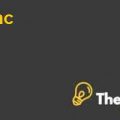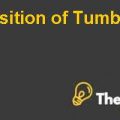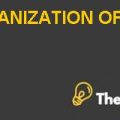DAQI CASE REPORT Case Study Solution
Problems
Daqi was one of the largest providers of the word of mouth marketing and user generated content in China in 2008. The CEO of Daqi, Grace Zhou was now considering the expansion of the Daqi business into three different areas, which were, news, music and popular bloggers. Each of these three areas would offer Daqi with hue growth opportunities and other benefits such as the growth of the online active users. However, the company would also face a number of risks and issues associated with these three growth opportunities such as government censorship, private lawsuits and significant capital investments. Along with the investment in the content verticals, the CEO also wanted to expand the online content of Daqi by collaborating with some of the Chinese top bloggers. If the company were successful in targeting the bloggers with around 10,000 readers then it would provide a huge boost to the site visitors of the company. Therefore, a final decision should be made for the company to pursue its future growth strategy after analyzing the relative pros and cons of each of the three alternative options.
Alternative Options
The three alternative options for the potential expansion include news, music and popular blogs. The analysis and the pros and cons for each of these three options have been discussed below:
Option 1
Music is considered as the top online activity in China with around 85% of the Chinese internet users listening and downloads the online music. The users spent less time on music as compared to news content but the competition was lower in this area. If Zhou adds music content within its database and online portal then it can boost the numbers of the online users significantly and the growth in the revenues and earnings would be highest among all the three available options (see appendix 4). The pros and cons of this option are as follows:
Pros: Zhou will have a number of ways to leverage on this opportunity and generate music content. First, Zhou can create a music service of its own which would provide the customers with the articles about the new album and the artists. It will also provide a tool for searching the large music database, which would include the song information, album and artist information. The results of the search can then direct the users to specific websites where they can legally purchase the music. Another option could be to build an online community of music where the internet users would contribute and discuss about the music content. The benefit would be that Daqi would be able to leverage its technology for fueling its user-based content. Through these sources, the company would be able to increase its advertising revenues and the volume of the WOMM campaigns.
Cons: The first issue was that the expansion of the company in music area would introduce the company to copyright concerns. It was in 2006 when China had issued the Ordinance of the Protection of the Right to Network Dissemination of the Information. This ordinance had implemented the international standards of Phonograms Treaty and the WIPO performances. This was sought to improve the copyrights of the digital content. These regulations can have a significant monetary impact on the company and there are more risks associated with the content model of Daqi because its model was similar to that of Baidu which had faced many legal issues of copyright infringement. There could be legal action against the company if the users began to post the illegal music content on Daqi to earn revenues (see appendix 2).
Option 2
The second option for Zhou is to expand in the area of news content. There were around 825 of the internet users which read online news in China. Therefore, the site of Daqi can leverage on this opportunity by widening its appeal to all of its active users by positing news content. An average internet user spend around 38% of her time on the internet in China, therefore, the inclusion of the news content would drive the volume of the WOMM campaigns and the advertising revenues for the company (see appendix 1 and 4).
Pros: There are many benefits associated with this option. Zhou would be able to post news content through different methods such as the company can form licensing agreement with the large news sites and they would then grant the permission to Daqi to post their news articles on daqi.com. In this way, the legal risk would be minimized and the quality of the content would be high and it could be easily maintained (See appendix 3). Secondly, Zhou also had the option of expanding the content database of the company and including the news content. In this way, the company can position itself more appropriately in the eyes of its customers and the company would be able to generate huge growth (see appendix 4).
Cons: The copyright laws would also affect the news content. For instance, under article 5 of the CCL, the news on the current affairs was not eligible for the copyright protection (see exhibit 7). The company might face copyright related lawsuits because the awareness related to the copyright laws has increased significantly. The number of copyright lawsuits has also increased between the content owners and the ISPs. Apart from this, the regulatory obligations for Daqi would also increase and the enforcement of the copyright guidelines and regulations would increase the costs for the company. This is the reason that the fore casted revenues and profits would be lower under this option (see appendix 4).
Option 3
The third expansion option for Zhou is to expand the existing UGC base of Daqi. The popularity of the individual bloggers has increased significantly and there are millions of daily readers. These bloggers included many people ranging from celebrities to bloggers which had no previous fame. Both sets of these bloggers would emphasize only on creating their content for their respective audiences. The company can expand into this area and provide space to the daily bloggers for publishing their content on daqi.com. This would increase the current user base of the company from the high popularity of all the featured bloggers.
Pros: This approach would be an easy and feasible approach for expansion because there is no required licensing arrangement with these popular bloggers. This would enhance the revenues of the company through social media interaction (see appendix 1 & 3). It will also provide a quick boost to the site usage. Through this option, Daqi would be able to provide unique service to its users who can discover the popular blogs around China. This would boost the advertising revenues and WOMM Campaigns for Daqi.
Cons: The issues associated with this were the government censorship as strict enforcement policies had been implemented by the government. Zhou was not aware about how the users would react when their blogs made them more popular. There is also a risk that the bloggers might demand licensing fees and it is uncertain that whether Daqi would be able to generate unique UGC content by handpicking UGC from the mass audiences.
Decision
After looking at the pros and cons of the three options available to Zhou, I would recommend that Zhou should go ahead with option 2 and option three both. Option 3 is less risky as compared to the other two options but it would generate growth for the company. Zhou would be able to leverage on the bloggers content and it would appeal to the internet users. Secondly. Zhou should form licensing agreement with the large news sites and they would then grant the permission to Daqi to post their news articles on daqi.com. This would reduce the legal risks faced by the company and it would enter into a new arena of online space. It would not be feasible to target music content at this point because of the changing landscape in China (see appendix 2 and 3)
DAQI CASE REPORT Harvard Case Solution & Analysis
Appendix
Appendix A
SWOT MODEL
Strengths
- Daqi is a UGC market pioneer in China.
- Top community site in China with 12 million users and more than 200 employees.
- The financial position of the company is strong and the company is financially sound.
- The estimated compounded annual growth in revenues and earnings is highly significant. (See appendix 1).
Weaknesses
- The internal controls at Daqi were quite weak in the initial years which led to lawsuits against the company such as the so called ‘human flesh search’ lawsuit.
- Around half of the users were engaged in UGC in China and Daqi was leveraging on this opportunity quite well, however, since the inception of the company it did not enter the news or music arena.
- Despite huge revenue and profitability growth the operating costs for Daqi were high not only in startup year but in 2007 and 2008 also......................
This is just a sample partial case solution. Please place the order on the website to order your own originally done case solution.










